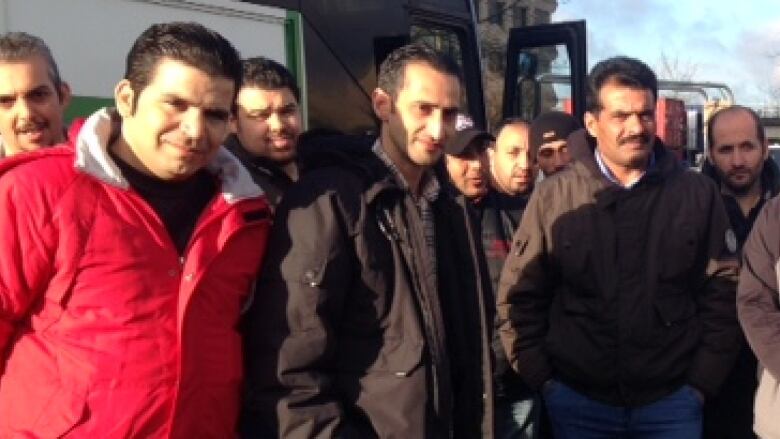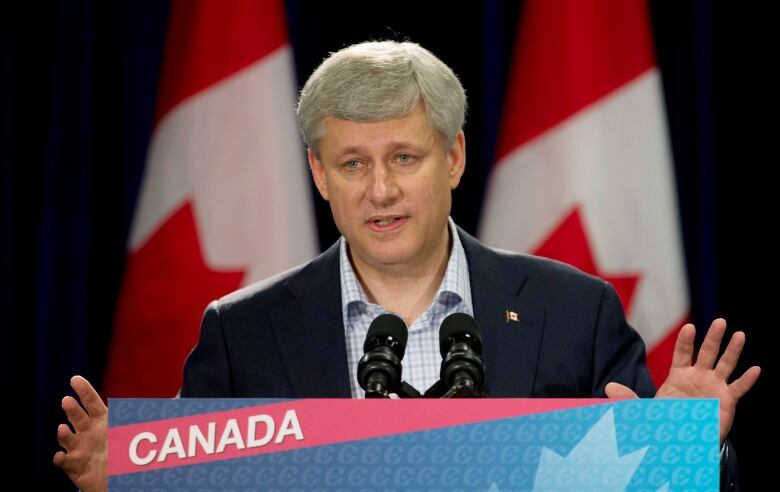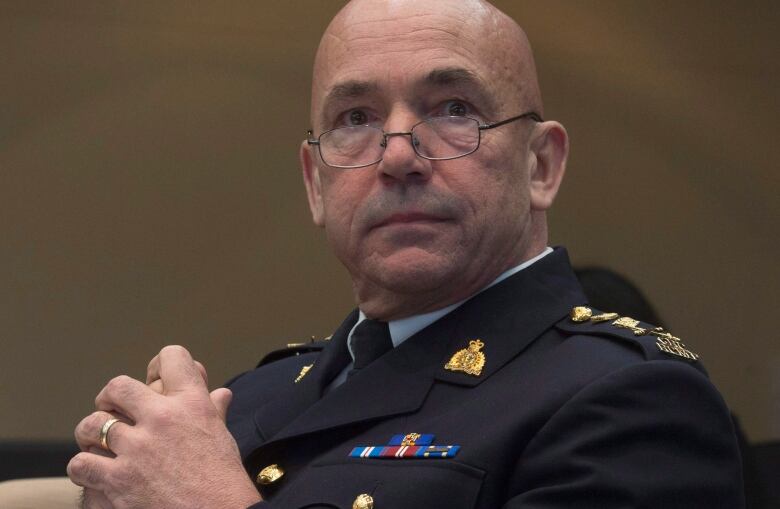RCMP refugee screening a $16M flop, says internal report
Pilot project to run the names of refugee claimants through police databases generated little of value

A $16-millionRCMPproject to help keep dangerous refugees out of Canada has turned out to be an expensive security flop.
An internal evaluation says the screening project delivered information too late, strayed beyond its mandate, and in the end did almost nothing to catch refugees who might be linked to criminal or terrorist groups.
Meanwhile, 30 Mounties were tied up for four years on duties that did little to enhance Canada's security.

The report on theanemicresults was completed at about the same time as thenprime minister Stephen Harper said Canada had to proceed cautiously in accepting Syrian refugees so that Canada's screening process could weed out terrorists.
"When we are dealing with people that are from, in many cases, a terrorist war zone, we are going to make sure that we screen people appropriately and the security of this country is fully protected," Harper told a 2015 election rally in Welland, Ont.
"We cannot open the floodgates and airlift tens of thousands of refugees out of a terrorist war zone without proper process. That is too great a risk for Canada."
Domestic databases checked
TheRCMPscreening pilot was launched in 2011-12 as part of a package of Conservative reforms tightening up the processing of refugees, including a controversial move to withdraw some medical treatments for rejected asylum seekers. The Liberals have since reversed that measure.
Under the pilot project, theRCMPvetted potential refugees already in Canada the names were provided by the Canada Border Services Agency by checking domestic police databases for links to criminal or terrorist organizations, among other things.
But the auditors found a raft of problems:
- RCMPofficers hired for the work couldn't get started for months because legislation was slow to be passed in 2012.
- The border agency andRCMPcomputers couldn't talk to each other, so the organizations had to exchange thousands of names manually.
- The costperscreening skyrocketed from a planned $425 to $1,026, on average.
- TheRCMPdelivered screening checks to the border agency too late about a third of the time, rendering them useless because of refugee-decision deadlines.
- TheRCMPreported only 85 of 4,085 names as potential problem refugees, the auditors said, based on a significant sample of the completed work. But the border agency used only two of those names in its vetting process because of late or inadequate information from the Mounties. And even the information on the two names was later found not to bepertinent to the border agency's final decision.
- TheRCMPpilot began poorly by primarily vetting the names of refugee claimants who were brand-new to Canada and therefore were unlikely to have a Canadian criminal record.
The report notes that under the Immigration and Refugee Protection Act, three specific kinds of activity renderindividuals inadmissible, such as spying, violating human rights or participating in organized criminal activity. TheRCMP, however, kept reporting other kinds of "adverse" activities that were irrelevant to the refugee-screening process.
In the end, the auditors said theRCMP'swork over four years likely had no bearing on the vetting carried out by border agency officers, who had access to other sources including fingerprint databases and apparently did competent risk-assessments on their own. The pilot project was shut down March 31, 2015.
'Evidence-based policy'
A spokeswoman for theRCMP, AnnieDelisle, said the pilot was "implemented as intended: theRCMPestablished a process within its organization to screen a portion of the refugee claimants against existing law enforcement databases."
ButDelisleacknowledged that "the results of the pilot project demonstrated that this screening process did not significantly contribute to theCBSAscreening process to warrant further implementation."

"We believe in evidence-based policy and in ensuring that government resources are being used effectively and responsibly," Scott Bardsley said in an email.
RCMPCommissioner Bob Paulson has said the force's new responsibilities for anti-terrorism have drained resources away from other key activities, such as fighting organized crime and market fraud.
Follow@DeanBeebyon Twitter












_(720p).jpg)


 OFFICIAL HD MUSIC VIDEO.jpg)
.jpg)



























































































